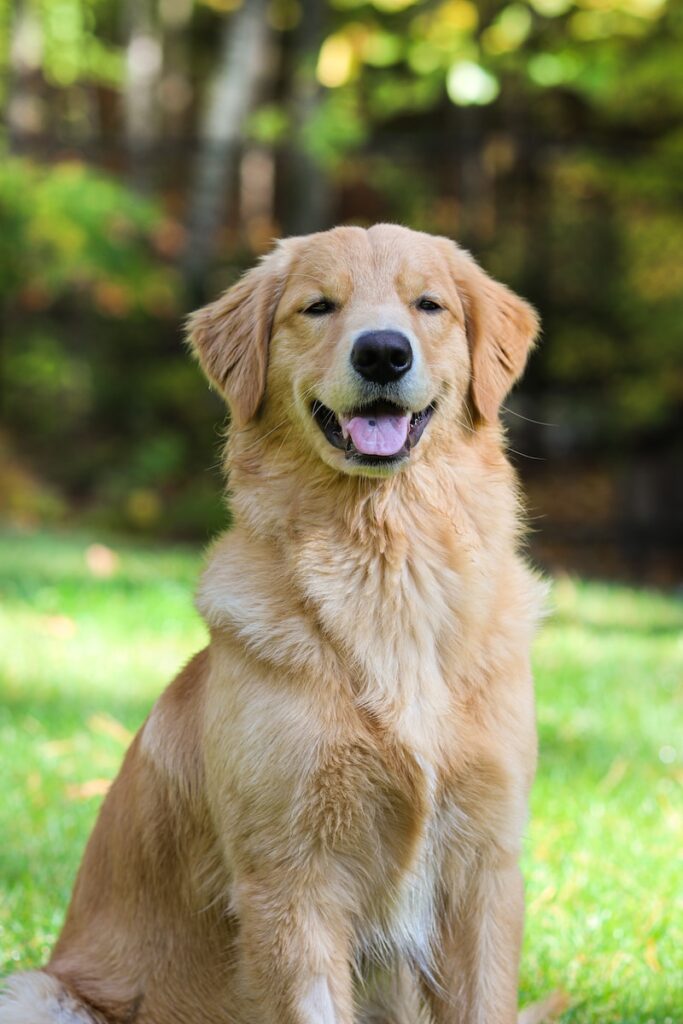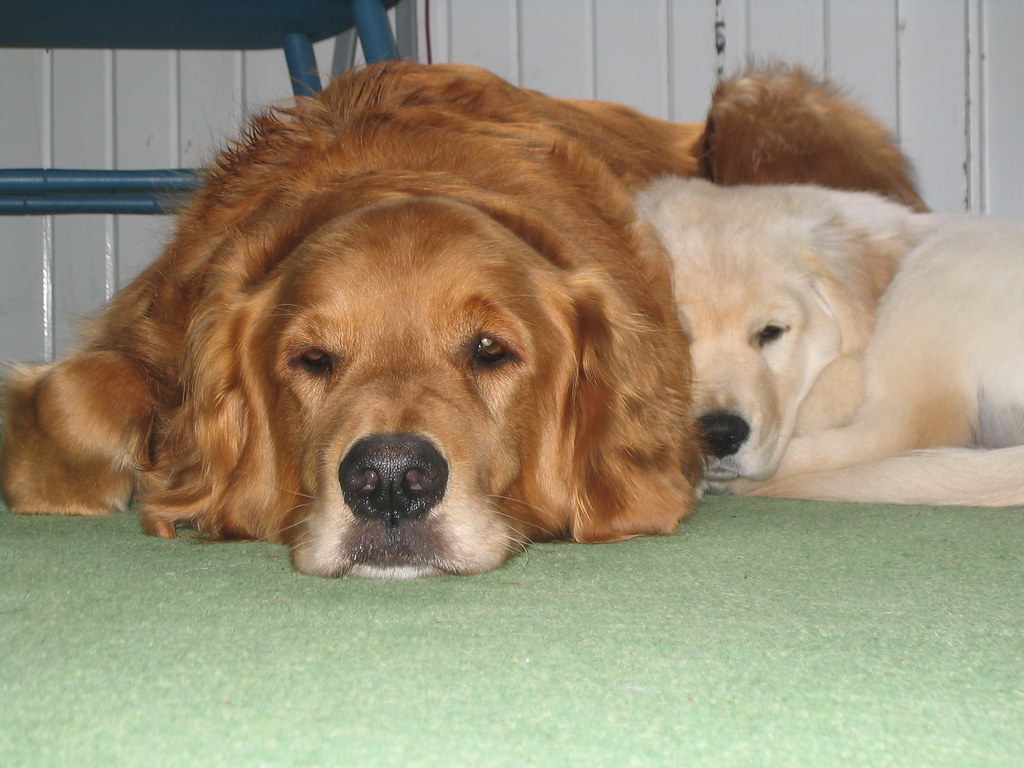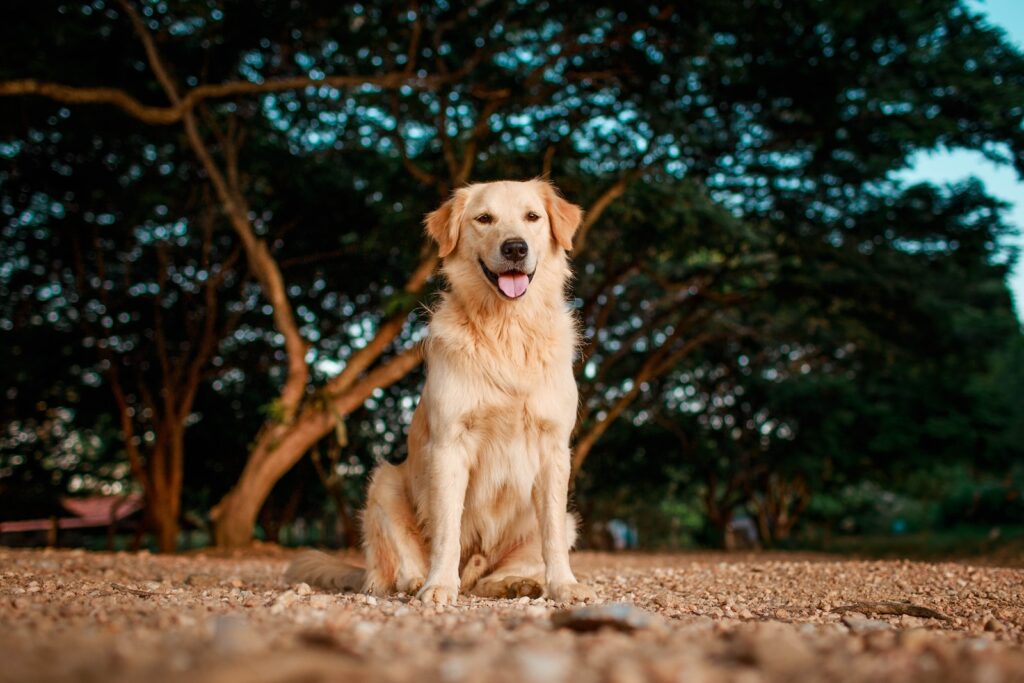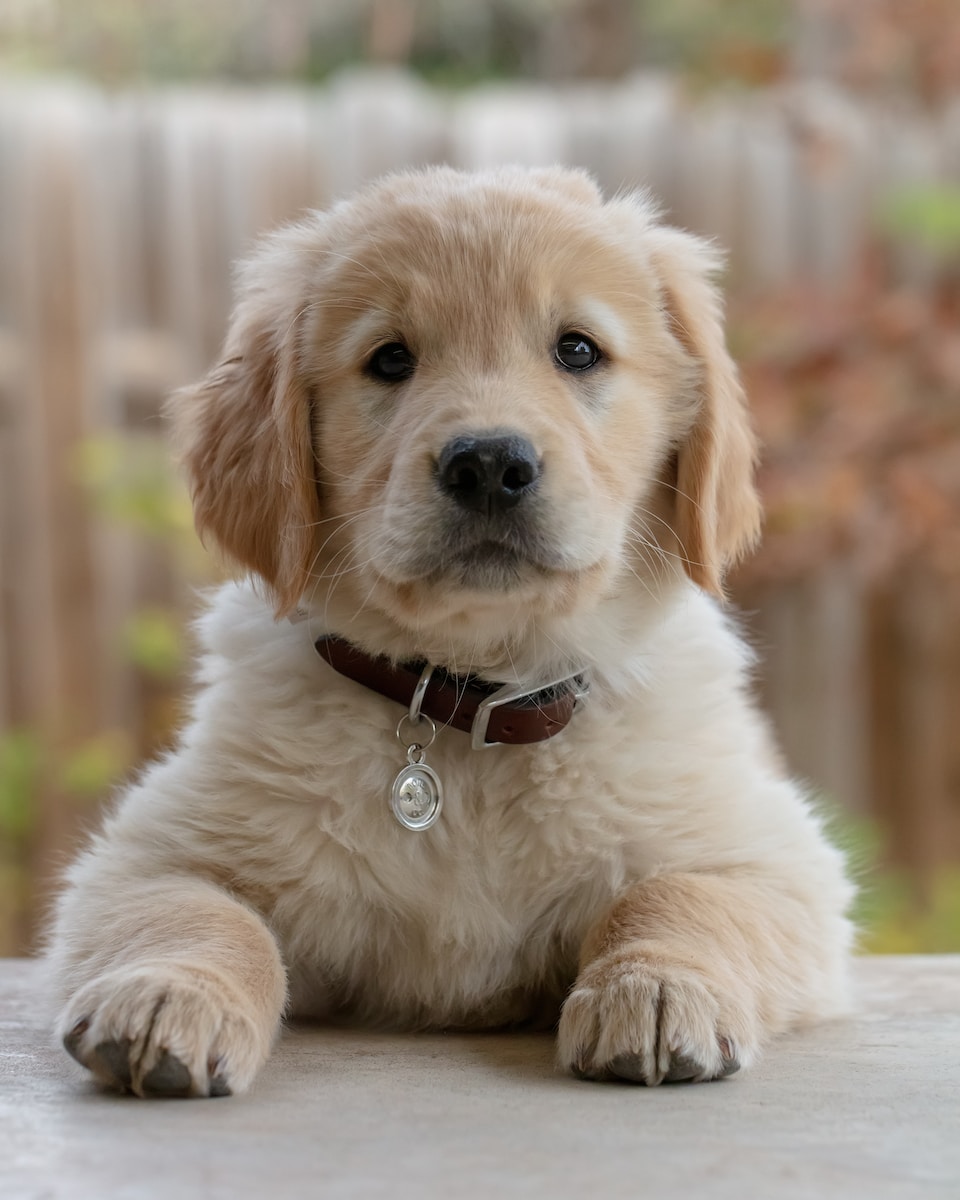Golden Retrievers, with their sunny disposition and boundless energy, are a popular breed for a reason. These lovable pups are not just family members; they are also eager learners. However, training these golden treasures can sometimes be a challenge, especially for new pet parents. This guide offers invaluable insights and tips on Golden Retriever training to ensure you and your furry friend enjoy a harmonious and happy journey together.
If you’ve welcomed a Golden Retriever puppy into your life or have a young Golden, you’re embarking on a rewarding journey that involves a little patience, a lot of love, and some effective training techniques.
By the way – if you’re looking for a comprehensive dog training program to dive into the fundamentals of dog training, I highly recommend Adrienne Farricelli’s “Brain Training For Dogs” program.
It’s a great program that really offers a deep dive so that you’ll be able to understand the why, as well as the how, of dog training.
Angel Phase (2-6 months): The Foundation of Training
The Angel Phase, spanning from 2 to 6 months, is where your Golden Retriever’s training journey begins. This phase is all about laying the groundwork for future obedience and social skills. It’s a critical time to bond with your pup and establish trust. Here’s what you need to know:

Training Initiatives:
Angel Phase is the perfect time to start group-based training like Puppy Kindergarten and basic obedience classes. Golden Retrievers are known to be eager to please, which makes training an enjoyable experience for both you and your pup. These classes help meet their physical, social, and mental needs.
Understanding Their Needs:
At this stage, your Golden Retriever may have a short attention span and boundless energy. Mouthiness is also common due to teething, as these dogs were originally bred to carry items in their mouths. You’ll notice that Goldens are vocal and expressive. To ensure good communication, understand the difference between friendly vocalizations and aggressiveness. It’s essential to interpret your puppy’s body language too.
Overcoming Fears:
Puppies experience a fear stage during this phase. Group-based training allows you to address and resolve normal fears that may arise. Exposing them to various stimuli like loud sounds and unexpected movements helps them develop coping skills, preventing fear-related behaviors from becoming permanent.
Defining “A Job”:
During the Angel Phase, you should establish schedules, routines, rules, boundaries, and expectations at home. This is the time to discover your puppy’s talents and interests. The breeders advise that your Golden will only be a calm companion if their intellectual, physical, and social needs are met. Provide mental stimulation and exercise for a happy and well-behaved dog.
Grooming and Care:
Frequent grooming routines are crucial. This includes trimming nails, brushing, and establishing dental care. Handling your puppy’s body, including ears, mouth, feet, and tail, creates a foundation for a lifetime of comfort during grooming.
Teenage Rebellion Phase (6-18 Months): Strengthening the Foundation
The Teenage Rebellion Phase, which spans from 6 to 18 months, builds upon the foundation laid during the Angel Phase. This phase brings its unique challenges:

Training Initiatives:
Training becomes even more critical during this phase. Goldens may exhibit rebellious behavior due to emerging hormones, causing mood swings. Focus on building their social skills, find playmates they enjoy, and provide them with ample exercise and mental stimulation.
Teething and Exercise:
While teething typically ends in this phase, Goldens still have a natural inclination to carry things in their mouths. Channel this behavior with commands like “leave it,” “drop it,” “give,” and “go fetch.” This phase is also the perfect time to explore various activities like Tricks, Rally, Agility, Field Work, Dock Diving, Obedience, Scent Work, and Barn Hunt.
Fear Stage Redux:
Another fear stage may emerge during the Teenage Rebellion Phase. Utilize the coping skills learned in the Angel Phase to prevent lasting fear behaviors.
Growth Milestones:
Your Golden reaches 80% of their growth during this phase. They may need adjustments to their caloric intake based on their continued growth and exercise patterns. While Goldens are athletes, weight management is crucial. Adult weight standards should be followed to keep them healthy.
Signs of Maturity Phase (18-24 Months): A Well-Engrained Protocol
By 18 to 24 months, your Golden Retriever has matured both physically and emotionally. Here’s what to expect:

Training:
With training protocols well-engrained, you can focus on more advanced training, such as achieving performance titles.
Growth Milestones:
Most Goldens have finished their growth, though males may continue maturing for an additional year. This phase is the ideal time to transition to adult dog food.
Purpose:
The physical and emotional development reaches full completion, and you should continue to build on the strong training foundation.
Grooming:
By this stage, your Golden’s coat requires regular trimming and grooming. Weekly nail trims, ear, teeth, and tail care are essential. This phase is when you’ll get to know your dog’s body and address any concerns early.
The Golden Recipe: Positive Reinforcement
Positive reinforcement is the cornerstone of successful Golden Retriever training. This method centers on rewarding good behavior rather than punishing the bad. When your Golden displays excellent conduct and obeys your commands, reward them promptly. These rewards can range from treats to praise and affection, strengthening the connection between their actions and pleasant outcomes.
Remember, it’s equally crucial not to inadvertently reward undesirable behavior. For instance, if your Golden barks excessively or jumps in excitement, refrain from acknowledging or giving in to these actions. Instead, wait until they are calm before providing attention.

Golden Retriever Training Favorites: Finding the Perfect Reward
Every Golden Retriever has unique preferences when it comes to rewards. While some are exceptionally food-motivated and will gladly work for edible treats, others may favor soft, chewy options over hard, crunchy ones. In contrast, some Goldens may not be too interested in food. In such cases, you’ll need to experiment with alternative rewards, such as interactive play sessions with their favorite toys or plenty of affection. Understanding your Golden’s preferred rewards will make training sessions more enjoyable and productive.

Golden Consistency: Setting the Rules
Consistency is the key to a well-trained Golden Retriever. This consistency extends not only to the commands you use but also to how every member of your household interacts with your dog. A unified approach among family members ensures your Golden learns new behaviors effectively. When rules and expectations are clear and consistent, your Golden feels secure and is more likely to respond positively.
Golden Short and Sweet: Training Sessions
Golden Retrievers thrive in short, frequent training sessions. It’s essential to keep these sessions engaging and energizing. The American Kennel Club recommends limiting training sessions to a maximum of five minutes because longer sessions can lead to distractions and frustration.
Your Golden may also struggle to apply commands across various environments or situations. To address this challenge, practice your training sessions in different locations, engage different family members, and introduce varying levels of distraction. This comprehensive approach helps your Golden Retriever generalize behaviors and respond consistently, no matter the setting.

Golden Steps: Building Complex Behaviors
For complex behaviors such as “stay” or when modifying unwanted actions, it’s advantageous to break these tasks into smaller, manageable parts. Begin with simple, achievable steps, and reward your Golden for each successful phase. Once they grasp the basics, you can gradually add complexity. This method simplifies the learning process and prevents your Golden from feeling overwhelmed.
Golden Fun: Keeping Training Enjoyable
Training should be a joyous experience for both you and your Golden Retriever. Keep the atmosphere positive and fun by incorporating short play sessions between training repetitions. Alongside basic obedience, consider teaching your Golden tricks. The enthusiasm you display when they master new tricks adds a layer of enjoyment to training. While it’s easy to focus on the end goal, be sure to celebrate every small victory during your training sessions.

Golden Praise: Acknowledging Progress
When training your Golden, remember that small steps matter. Acknowledge and praise every bit of improvement, no matter how slight. Celebrating these achievements keeps both you and your Golden motivated.
Golden Routine: Integrating Training into Daily Life
Make training a part of your daily routine by asking your Golden to follow a command before meals, walks, or playtime. This integration ensures you can conduct many short training sessions throughout the day, reinforcing their understanding of commands and strengthening the training bond.

Golden Signals: Combining Verbal and Hand Commands
Many Golden Retrievers respond exceptionally well to hand signals in addition to verbal commands. You can begin with hand signals alone and later introduce the corresponding verbal commands. This dual approach enhances their understanding and response to your instructions.
Seeking Professional Help with Golden Retriever Training
If you encounter challenges or roadblocks in your Golden Retriever’s training, don’t hesitate to seek assistance from a professional dog trainer or enroll in a training class. Experienced trainers bring a wealth of knowledge to address various issues and provide tailored solutions for your unique situation.
When choosing a trainer, ensure they employ positive reinforcement techniques and consider reading reviews or seeking references. Professional guidance can be one of the quickest ways to achieve the desired results.

Golden Retriever Training: The Takeaway
Golden Retriever training is a journey of love, trust, and mutual understanding. Embrace positive reinforcement, tailor your rewards to your Golden’s preferences, maintain consistency, and keep sessions short and engaging. Acknowledge progress and make training a part of your everyday life. By doing so, you’re on the path to building a harmonious and happy bond with your beloved Golden Retriever. Remember that every dog is unique, so adapt your training to their individual needs, and enjoy the golden moments together.

Be sure to check out our blog for even more dog training tips!


0 replies on “Golden Retriever Training 101: Full Training Guide”
xi91mu
Your comment is awaiting moderation.